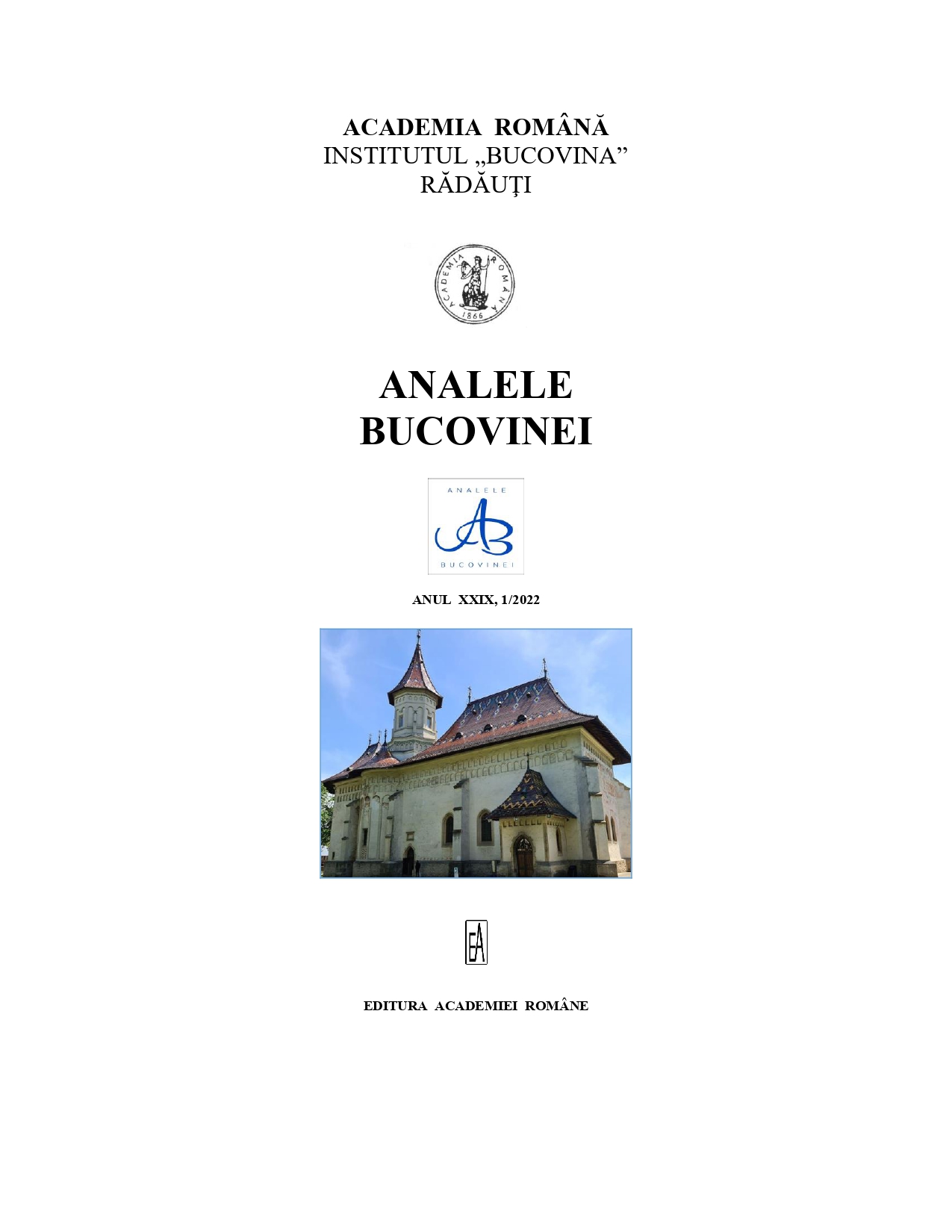GUVERNUL CONSERVATOR LASCĂR CATARGIU ȘI SERBAREA DE LA PUTNA DIN 1871 ZIARUL „PRESSA” ȘI ATITUDINEA EXECUTIVULUI
FAȚĂ DE MANIFESTAREA DIN BUCOVINA
The Conservative Government of Lascăr Catargiu and the Putna Celebration
in 1871. The Newspaper “Pressa” and the Attitude of the Executive
towards this Event from Bukovina
Author(s): Ioan-Gabriel ChiraşSubject(s): History, Political history, Modern Age, 19th Century, Period(s) of Nation Building
Published by: Editura Academiei Române
Keywords: Romanian press; The Putna Celebration; Lascăr Catargiu; „Pressa”; Romania; Austro-Hungarian Empire; Vasile Boerescu;
Summary/Abstract: The appointment of Lascăr Catargiu as prime-minister in March 1871 meant for a significant part of the Romanian politicians and especially for the European powers that element of stability which the Romanian state needed, taking into account the last years when governmental instability threatened the very configuration established by the great powers. The directions taken by the conservative government in taking power were by no means difficult. The cabinet’s mission was all the more difficult, as the conservatives had to offer all the evidence of stability and security of the Romanian throne. On the other hand, an entire political program was waiting to be implemented, a program that was to contain the essence of the vision of these right-wing politicians. The two dimensions of politics, internal and external, frequently intersected in the direction of fullfiling the conservative political program. Regarding the Putna Celebration, the attitude of the conservative government towards it showed that many aspects of the domestic and foreign policy were imposed as standards in precedent years. If during the preparation of the celebration the newspapers continuously transmitted information about what was happening in Putna, “Pressa”, considered to be the government’s newspaper, limited itself to reporting very little about the event. Even personalities like Cezar Bolliac, who embraced the views of the cabinet (and often published his opinions in the periodical “Trompeta Carpaților”), could not help but wonder how conservatives, as representatives of the Romanian state, preferred not to participate to this celebration. There are many answers to this question and they concern different specific issues that the Romanian state was facing in those months. On the one hand, the simplest answer is the foreign policy during the first month of the cabinet’s activity. Appointed by the government only a few months earlier, the executive had a difficult task in giving the European states all the assurances regarding the internal stability. On the other hand, the difficulties faced bythe conservatives – here we recall the well-known Strousberg affair –, could only putharder pressure on the image of the Romanian state. A direct support for the PutnaCelebration coming from the Romanian state would have caused new strain relationswith the three neighbour empires. In fact, the solving of the foreign policy issues wasbased on the cooperation, even if sometimes conjectural, with the Austro-HungarianEmpire. In this context, the presence of conservatives in Putna was not desirable.
Journal: ANALELE BUCOVINEI
- Issue Year: 58/2022
- Issue No: 1
- Page Range: 53-60
- Page Count: 8
- Language: Romanian

